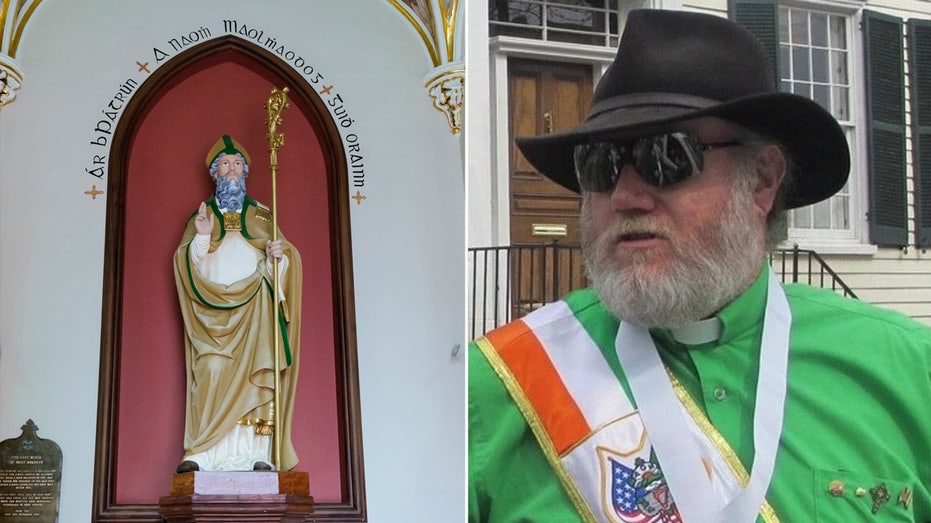In the year 2024, the celebration of St. Patrick’s Day coincides with the Fifth Sunday of Lent, marking the feast of Ireland’s patron saint. Amidst the festivities, a priest emphasized the significance of St. Patrick’s story as a testament to the power of divine forgiveness.
According to Fr. Timothy Harris, T.O.R., of St. John Vianney Parish in Johnstown, Pennsylvania, and a chaplain for the Ancient Order of Hibernians, St. Patrick’s narrative is often surrounded by folklore and misconceptions.
Contrary to popular belief, St. Patrick was not Irish; rather, he was likely born in Wales or Scotland. He was taken as a slave to Ireland at the age of 16 but eventually returned to his homeland at 22, following what Harris describes as divine guidance.
Pennsylvania Priest Highlights St. Patrick’s Story’s Relevance for Lent (Credits: FOX News)
While some traditions, like the association of the shamrock with the Trinity, lack historical evidence, St. Patrick’s life serves as a poignant example of God’s mercy and love, particularly for young people. Despite his rebellious youth and initial rejection of his faith, St. Patrick ultimately found solace and redemption through his renewed dedication to Catholicism during his years of captivity in Ireland.
The parallels between St. Patrick’s journey and the readings of the Fifth Sunday of Lent, which call for repentance and the embrace of God’s law, are striking. Harris emphasizes the importance of recognizing the consequences of one’s choices and the constant offer of divine mercy, especially in a world fraught with temptation and peril.
Ultimately, St. Patrick’s story serves as a reminder that forgiveness is always available to those who seek it. As Lent encourages introspection and repentance, Harris urges individuals to follow St. Patrick’s example by humbly turning to God for forgiveness and finding true peace in reconciliation.
